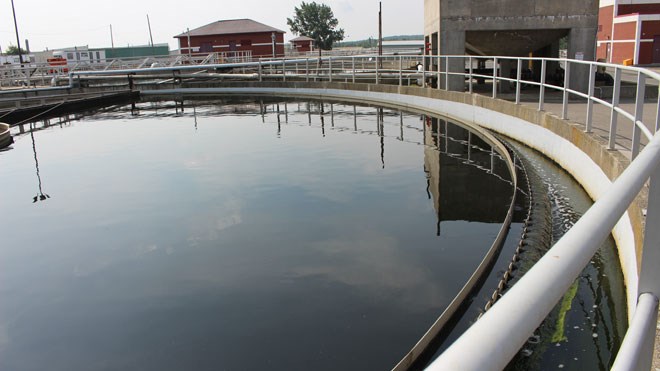Greater Sudbury's $63.1 million Biosolids Management Facility is operational, the city announced Thursday.
In a news release, the city said the plant was completed on time and on budget.
“This state-of-the-art, award-winning, facility is the first of its kind in Northern Ontario and establishes Greater Sudbury as a leader in environmentally sound water/wastewater processing,” the release said.
The facility was necessary because the municipality could no longer use Vale’s tailings ponds near Lively, which acted as a disposal site for waste activated sludge from wastewater treatment facilities for the last 30 years.
“While this was once an acceptable practice, changing environmental standards and episodes of odour in nearby communities led the city to find a more permanent and sustainable method of sludge disposal and treatment,” the release said.
“The new Biosolids Management Facility will reduce the impact of our waste on the environment while providing effective use of taxpayer dollars,” Mayor Brian Bigger is quoted as saying in the release. “I want to thank Vale for allowing us to use their site over the years.”
The facility is a centralized wastewater sludge de-watering and stabilization facility producing Class A biosolids at the Sudbury Wastewater treatment plant on Kelly Lake Road.
It's “an environmentally responsible and sustainable plant that is safe to all surrounding communities, delivering a long-term, modern approach to wastewater management,” the release said.
While a municipally owned facility, it was build through a public-private partnership (P3) and will be operated for the next 20 years by N-Viro, a family-owned company with more than 125 years of experience in the industry.
“In implementing the P3 model, we are able to realize a number of benefits such as leveraging the experience of the private sector in operating this facility and distributing the end product,” said Tony Cecutti, the city's general manager of Infrastructure Services, is quoted as saying in the release.
“Utilizing the expertise of N-Viro allows us the opportunity to reduce operational costs and keep in line with industry best standards.”
The total price tag of the project is $63.1 million, with the Government of Canada contributing up to $11 million through the P3 Canada Fund.
“This project is another great example of how public-private partnerships bring together important public infrastructure initiatives and the expertise of the private sector,” John McBride, CEO of PPP Canada, said in the release.
“The City of Greater Sudbury demonstrated a clear need for this project. Public infrastructure projects such as water treatment facilities improve public health and enhance the quality of life of all Canadian families.”
The project has been in the planning stages since 2007 as a way to improve sludge disposal practices in Greater Sudbury. In 2012, the city entered into an agreement with N-Viro Systems Canada LP, now part of the Walker Environmental Group, for the design, build, finance, operation and maintenance of a city-owned biosolids management facility, with N-Viro committing to a financing plan for the full 20-year term of the contract.
As part of the agreement, the city will also receive revenue from sales of the biosolids end-product.
“Walker Environmental Group is very proud to be investing in the City of Greater Sudbury’s Biosolids initiative,” said Mike Watt, executive vice-president of Walker Environmental Group Inc. “We successfully process and produce fertilizer in five other locations across Canada. Our process turns organic residuals into an agricultural and beneficial soil amendment called N-Rich®, used primarily in the agricultural sector and for land reclamation projects.”
The Biosolids Management Facility has been in its startup and commissioning phase for the last two months and is taking sludge produced at all city wastewater treatment plants to produce biosolids.
The final phase of the project has been completed, allowing the plant to proceed as scheduled.
The official grand opening of the facility is expected in summer 2015. For more information, visit www.greatersudbury.ca/biosolids.
Join Sudbury.com+
- Messages
- Post a Listing
- Your Listings
- Your Profile
- Your Subscriptions
- Your Likes
- Your Business
- Support Local News
- Payment History
Sudbury.com+ members
Already a +member?
Not a +member?
Sign up for a Sudbury.com+ account for instant access to upcoming contests, local offers, auctions and so much more.
